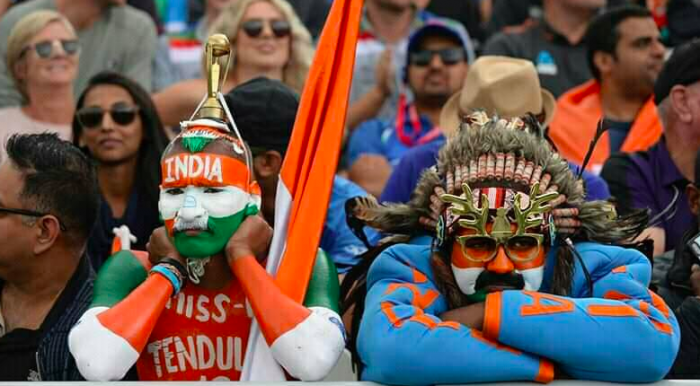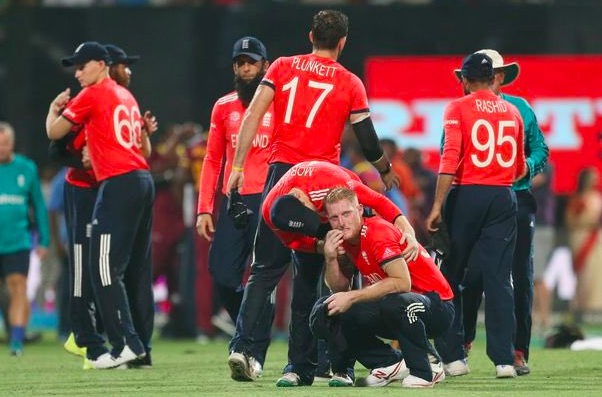How ICC messed up Final of Cricket World Cup 2019 - A cricket fan's honest take
Devendra Kulkarni
Devendra is an Engineer by profession but loves to write about Cricket when he gets emotionally charged up.

Finally, the long world cup is over… For the nations who are not too fond of Cricket it was like “What’s the big deal with your world cup man? It’s just 10 teams? What’s taking you so long to decide a winner?” Who can explain them that the winner was not decided even after the 100th over of the final match. For cricket lovers though, the World Cup 2019 final came as once in a lifetime opportunity to witness how amazing the competitive team sport could be. I have witnessed several of close finishes but this has to rank at the very top. One has to feel extremely sad about the bizarre rule that decided the fate of both the teams though!
Had New Zealand won the match based on the number of total boundaries scored in the entire match, what would the English have the same level of chivalry ? On the contrary, living up to their true sportsman spirit, New Zealand showed extreme grace in the moment of disgrace to the ICC. Now, there has been a fair argument that the rules are the rules. The rules were decided before the tournament began and everyone has to agree to those. That’s absolutely valid and that’s how Cricket should be played. It’s interesting to point out that several of the bizarre rules never get discussed, until one team has to suffer an excruciating pain of exiting a competition like the Cricket World Cup. Just recall those memories of South African teams teased by rain multiple times in 1992. Or even Pakistan feeling shattered in after having matched New Zealand in points table and not qualifying for the semi finals even after beating New Zealand. Such examples have been a consequence of mental laziness from ICC. Let me explain.

Laziness of ICC Panels
Let’s assume that you are on the panel deciding the rules for how to pick a winner in case of a situation as the one unfolded in the final yesterday. The panel brainstorms to come up with multiple logical options. One way to go by is compare the number of wickets fallen during the main innings. If that ties then compare the extra runs conceded by the teams. Another way could be to compare the dot balls bowled by both the teams and value the bowlers as well. Another logical reasoning is to check the head to head result of these two teams. Maybe to compare the net run rates as a last option if nothing is conclusive. The above alternatives are not necessarily in any priority. But I am proposing multiple ways of comparing the two teams’ different areas of performance in order to pick a winner in case of a tie. But to rely on the ability to hit boundaries in 300 ball inning is just not helping the cause of Cricket, at least in my mind.
As a cricket fan, I am under the assumptions that the ICC panel laying out such rules would have given thorough thinking to many such alternatives. I do not have any problem abiding to the rules once they are finalized before the tournaments. It is just that, as an ODI fan, it offends me to learn about how lazy the panel has been in putting their heads together around such scenario. Let me remind everyone, this was a god damn One Day International World cup (and not a teeny tiny tournament).

Argument Against T20
The cricketing world has been hearing about the threat that T20 cricket has been posing to the other formats of the game. ICC has been coming up with ways to support other formats and promote them for their survival. With so much fuss about T20 shadowing all the other formats, it was even more important that ICC puts more emphasis on such rare events so as to create a clear convincing resolution. For one, the last thing the Cricket world wanted was a controversy or lack of unanimity before deciding the winner here…least to say that the Cricket World Cup Final does not happen every year. However, more importantly for cricket fans – look what ICC is conveying through this rule. “In case of a tie, we would decide the winner based on batsmen’s ability to hit boundaries than any other skill that is required to be a winning team at the ODIs.” That to me was the ultimate disgrace to this world cup since it just deflated the argument of ODI cricket’s superior skillsets to T20 crickets’ energy bursts. The rule has multiple implications in itself.
It is obvious that victories in ODI’s are built upon partnerships and longer spells of good bowling compared to T20. So actually, the ability to rotate the strike and running between the wickets is at least equally, if not more, important than finding boundaries. But ICC is saying, “We do not care about how good you are capable of rotating strike; we do not care about how fast and smooth you communicate and execute your running between the wickets. We are not going to put any value on running between the wickets or on the ability to build partnerships (which is actually more holistic parameter for a teamwork and strategy). We obviously do not value the bowlers as they are just human bowling machines. For us, a team scoring 40 runs losing 5 wickets in 40 balls with 10 boundaries is a superior ODI team than a team that scores 40 singles in 40 balls without losing any wicket!”
After all this campaign to save ODI cricket from T20, look what ICC is promoting? It is saying that, in case of a tie, the skills we value in ODI world cup are the same exact skills that we value in T20 cricket. In other words, we have failed to provide an alternative that is different (let alone better) than T20. That is why, I am extremely disappointed for a plethora of players – both current and past – who took pride in building the skillset required to be a successful ODI match winners. Just think of Michael Bevan, Jack Kallis, Rahul Dravid, Chris Cairns, Andy Flower, Steve Waugh, Carl Hooper, Inzamam, Dhoni, Jaywardana, Joe Root, Ken Williamson as some examples. Even for the current generation, why would the teams across the world want to breed cricketers anymore that have these skills? I just feel so sad about the ODI cricket in addition to being sympathetic to the New Zealand side. I have to clarify that regardless of what the rules were otherwise, it is absolutely possible that England would have ended up being on the winning side. That would have been totally fine. But that would have been the real accolade for the skillset a great One Day International side should have and that this England team possesses rather than eventually turning up to the T20 skillset just because ICC ran out of ideas. Pure shame.

Ball vs Bat
This World cup has seen the value that bowlers bring into the game. Instead of being bat vs bat contest, it has truly being the overall team contest where all aspects of your skillset were exposed and tested in order to go past other teams. An alternative could have been to value the ability of bowlers to bowl maiden overs or dot balls. The bowling unit that bowled most maidens/dot balls wins the match. There is a double advantage to this. First, it emphasizes the bowling skill which is valued less in T20. Needless to say that you don’t see much maidens in T20s. This clearly distinguishes the ODI cricket from T20 in that it endorses the ability of bowlers to directly influence the result of the match in an additional way. Secondly, statistically, it is very rare to find competing teams in an ODI to have bowled same number of maiden overs/dot balls in case of a tie. (On the other hand, chances of having a tie super over are very high.) This really helps breaking the tie. ICC can surely use some tips next time they make decision on important aspects of the rules by using some on creativity from fans!

Have a whack, weird or fresh take on Cricket ? We would love to have you here. Share your take on cricket – write us an email at hello@crickethuddle.com

